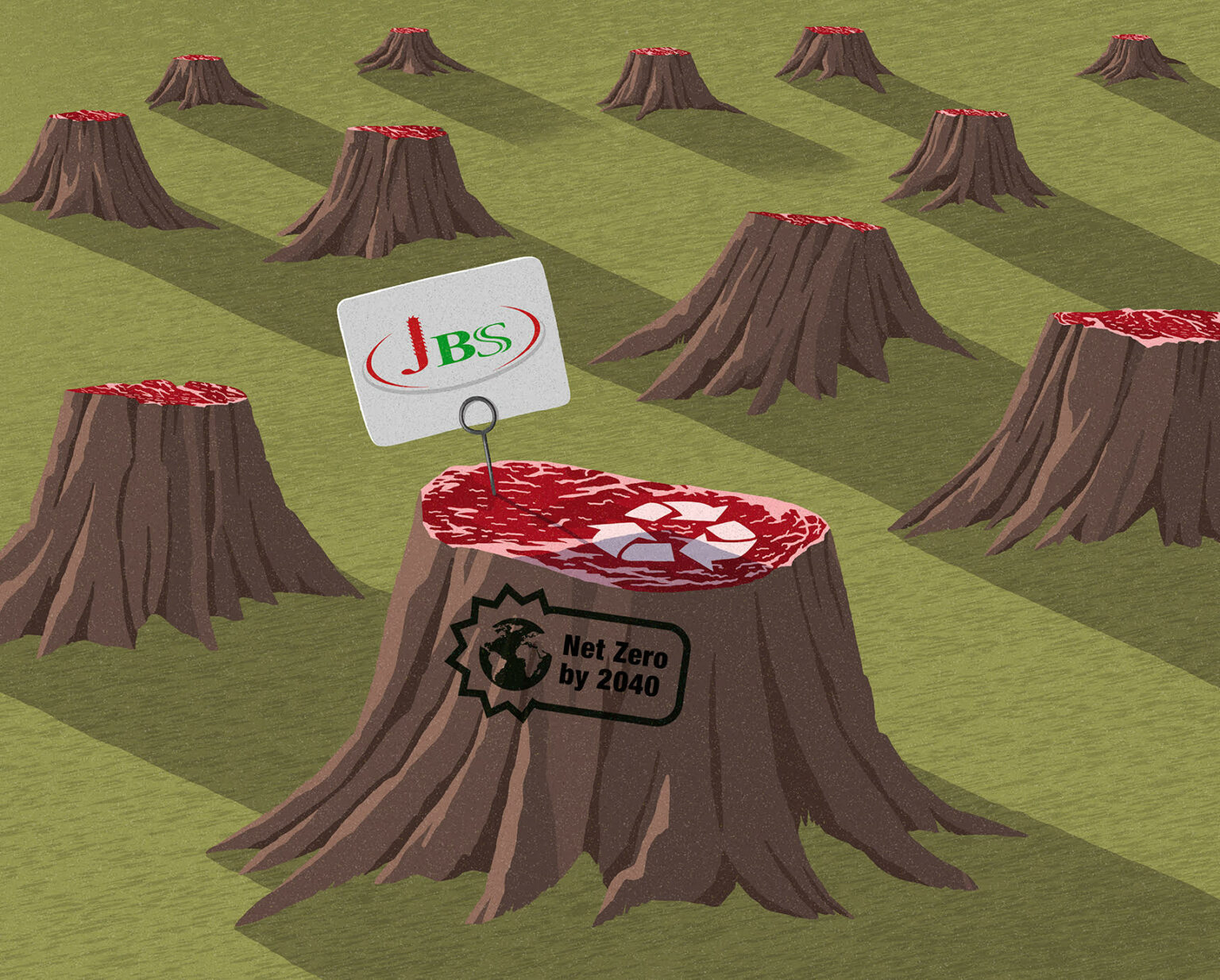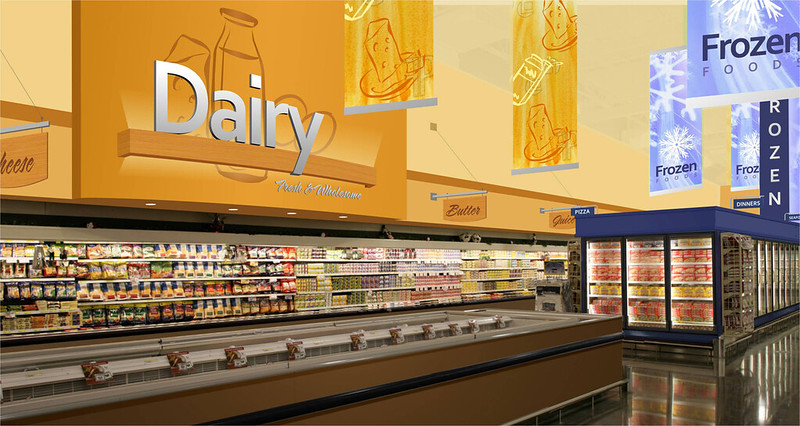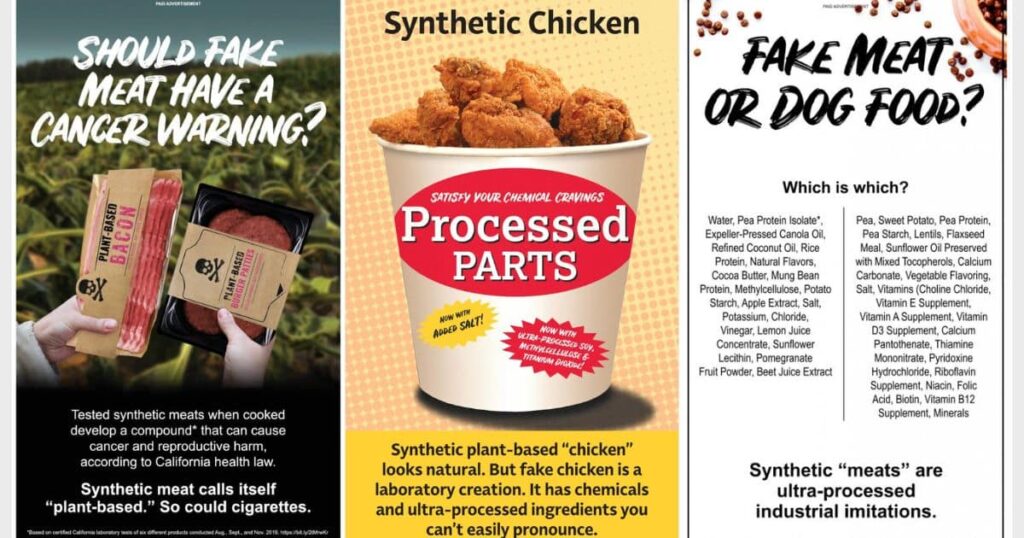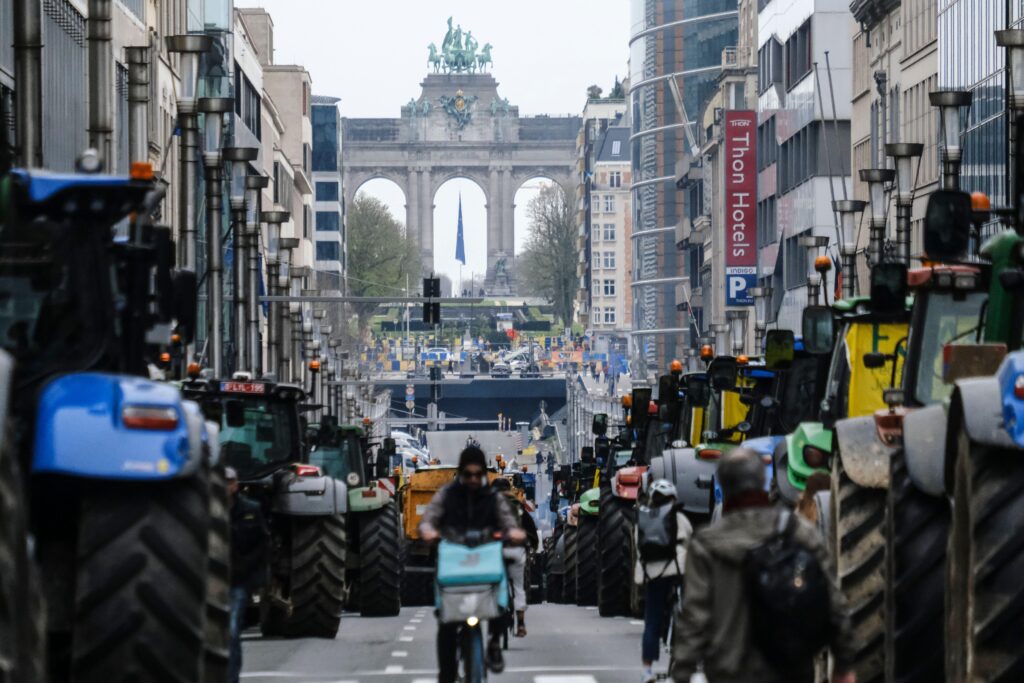Greenhouse gas emissions produced by JBS, the world’s largest meat processor, have surged more than 50 percent in the past five years as the company has acquired new poultry and livestock units – meaning it now has a larger climate footprint than Italy, according to a new study.
The findings, published ahead of the Brazilian company’s annual general meeting on Friday, prompted renewed calls from climate campaigners for asset managers to divest from JBS – despite its pledge to hit net zero carbon emissions by 2040.
“It’s mind-blowing that JBS can continue to make climate claims to investors, even as the company massively increases its emissions,” said Shefali Sharma, Europe director for the Institute for Agriculture and Trade Policy (IATP), a nonprofit advocacy organisation, which calculated the estimates.
IATP found that JBS’s emissions rose from 280 million metric tonnes of carbon dioxide equivalent (MtCO2e) in 2016 to 421.6 MtCO2e in 2021 – an increase of 51 percent over five years. To put those figures in context, Italy – a country of 59 million people – produced 418.3 MtCO2e in 2019.
This increase came largely as a result of JBS acquiring competitors around the world. The number of cattle in JBS’s supply chain has increased by 54 percent since 2016, while the number of pigs increased by 67 percent, and chickens by 40 percent, according to an IATP tally of company data. In 2021 alone, JBS processed 26.8 million cattle, 46.7 million pigs and 4.9 billion chickens.
Greenhouse gases are emitted throughout the process of producing livestock and poultry. Deforestation to create pastures and feed for livestock releases CO2; methane is emitted from animals and their manure; and fossil fuels are used to transport animals and power the globalized meat supply chain.
JBS did not immediately respond to a request from DeSmog to provide its own emissions estimates or comment on the study.
The company told the Financial Times it denied the accuracy of the estimates, saying the study used “flawed methodology and grossly extrapolated data to make misleading claims.”
After publication, JBS told DeSmog the company was already working to disclose its emissions “in line with best practice international standards” and having an independent third party verify its net zero target, which it described as its “number one priority”.
IATP said that its estimates of the company’s emissions may be conservative since it has struggled to obtain precise numbers from JBS about its overall emissions, the number of animals in its supply chain and the number of animals it slaughters each day. The advocacy group also said it used conservative estimates to factor in the climate impact of deforestation associated with the company.
IATP calculated the figures with input from food systems campaign group Feedback and DeSmog. The findings were featured in a wider report released on Thursday on JBS’s environmental impact, financiers and customers by the Mighty Earth advocacy group, entitled The Boys from Brazil.
‘Greenwashing’
Long under fire from campaign groups over evidence linking the company to deforestation in the Amazon, JBS became the first major player in the meat industry to pledge to slash its carbon emissions to net zero in March last year.
Gilberto Tomazoni, JBS chief executive, said at the time that the company had an opportunity to leverage its scale and influence to lead a “sustainable transformation” of agricultural markets.
“Agriculture can and must be part of the global climate solution,” Tomazoni said. “We believe through innovation, investment and collaboration, net zero is within our collective grasp.”
Climate campaigners said the surge in emissions caused by the company’s expansion in recent years suggested that the net zero target was little more than “greenwashing,” and urged investors to divest from the company. The top shareholders included the Brazilian development bank BNDES, BlackRock and Fidelity Investments, according to the Mighty Earth report.
“It’s high time that banks and investors, many of whom have adopted their own ‘net-zero’ targets and committed to end deforestation, ceased to bankroll climate chaos and the destruction of nature, by pulling the plug on their financial backing to toxic JBS and its subsidiaries,” said Carina Millstone, executive director of Feedback.
In 2020, Danish investor Nordea Asset Management sold all of its shares in JBS due to concerns about the company’s environmental impact and its response to the COVID-19 pandemic, Reuters reported.
Mighty Earth’s report drew on previous research to suggest that JBS has been responsible for the loss of at least 200,000 hectares of forest in its direct supply chain, and 1.5 million hectares in its indirect supply chain, since 2008. Concerns over deforestation have prompted calls for supermarket chains to sever ties with JBS and other Brazilian meat suppliers.
“JBS is one of the world’s worst climate offenders and that’s why we’re urging its key customers like giant supermarkets Carrefour, Costco and Tesco to drop JBS urgently,” said Alex Wijeratna, campaign director at Mighty Earth. “No company that buys meat from JBS can claim to be serious about climate change.”
Paul Morozzo, forests campaigner for Greenpeace UK, said the latest estimates for the company’s greenhouse gas emissions provided further justification for boycotting JBS.
“Here’s yet more evidence of the fact that JBS – a major meat supplier to many UK supermarkets – shows absolutely no intention of ending its climate wrecking activities,” Morozzo said. “Tesco recently claimed that remaining a customer of JBS was the best way to influence it. But the only way to show JBS that destroying the planet for meat production won’t be tolerated is to stop doing business with it immediately.”
Tesco says it does not buy meat directly from JBS – but does buy meat from Moy Park and Tulip, two long-standing suppliers which JBS recently acquired. Tesco said these companies are on track to meet its commitments under its plans to eliminate deforestation in the soy supply chain, and that it was also pressing JBS on a range of issues.
JBS says that it is “committed to combating, discouraging and eliminating deforestation in the Amazon” and that it prohibits any cattle from deforested land from entering its supply chain.
Behind the Numbers
To calculate the emissions figures, IATP used the UN-approved GLEAM methodology to update the findings from its 2018 Emissions Impossible report on the climate impact of the meat and dairy industry.
Using JBS company reports and publicly available data, IATP determined how many cattle, pigs and chickens the company processed in 2021. IATP then used the UN Food and Agriculture Organization’s most recent GLEAM data to estimate greenhouse gas emissions per kilo of beef, pork, and poultry – accounting for regional differences in the climate impact of production. These variables were used to produce a total emissions estimate.
Earlier this month, energy thinktank Ember produced a list of the top ten emitting coal power plants in Europe in 2021. Top emitter Bełchatów in Poland released 33.2 million metric tonnes (Mt) of CO2 in 2021 – one thirteenth of the estimate for JBS’s 2021 emissions.
JBS’s methane emissions have also caused concern amid a growing recognition that the gas exerts a much stronger short-term warming effect than carbon dioxide. The EU and US announced a global pledge to cut methane emissions 30 percent by 2030, compared to 2020 levels, at the UN climate talks at COP26 in Glasgow late last year.
According to the UN’s 2021 global methane report, agriculture makes up 40 percent of human-made global methane emissions, with the vast majority stemming from livestock emissions from manure and fermentation in the digestive tracts of animals. Global atmospheric emissions of methane hit a record high in 2021, the second year in a row the record was broken, according to the US National Oceanic and Atmospheric Administration.
Net Zero Target
Renewed scrutiny of JBS’s contribution to climate change comes against a backdrop of growing concerns over greenwashing. In March, the UN announced the creation of a new greenwashing watchdog group, which plans to publish recommendations on how to judge companies’ net zero targets; suggest how to translate them into national and international regulations; and discourage over-reliance on carbon offsets. The group will not be “naming and shaming individual companies”, according to UN special advisor on climate Selwin Hart.
As evidence of its commitment to reduce emissions, JBS points to its net zero by 2040 target, saying the goal is the “first of its kind” in the industrial agriculture industry.
To prove the company is reducing its environmental impact, JBS also cites the development of blockchain technology to reduce deforestation by improving the traceability of cattle in its Brazilian supply chain, and its adoption of methane-reducing feed additives.
However, campaigners say a lack of disclosure by the company is harming the credibility of its pledges.
JBS publicly reports what are known as “Scope 1” and “Scope 2” emissions to the Carbon Disclosure Project (CDP), a non-profit environmental disclosure organisation. Scope 1 covers direct emissions from company-owned or -controlled sources – such as vehicles or factories. Scope 2 generally refers to emissions produced to generate the electricity used by the company.
JBS does not publish Scope 3 – which includes emissions generated across a company’s entire supply chain. Campaigners say that this is a glaring omission since JBS has acknowledged that approximately 90 percent of its emissions fall into this category.
Another metric that JBS and food industry peers use to report their emissions – known as “emissions intensity” – calculates the greenhouse gas emissions associated with producing a kilogram of meat.
JBS and other companies say that reducing emissions intensity – for example by adding methane-minimising additives to livestock feed – will allow them to continue producing meat at scale while reducing absolute emissions.
Nevertheless, the company’s emissions intensity increased by 30 percent from 2019-2020, according to figures JBS provided to the CDP. This was despite the fact that the company had in 2020 set a target to cut its Scope 1 and 2 emissions by 30 percent within 10 years.
JBS has also faced questions over its compliance with the Science Based Targets Initiative (SBTi), which helps companies to set independently-verifiable goals to reduce emissions in line with the 2015 Paris Agreement on climate change.
Institutional Shareholder Services ESG, a company that provides investors with climate-related data and analytics, has determined that JBS’s target to reduce its Scope 1 and 2 emissions is not aligned with SBTi methodology. That’s because SBTi requires any company in which more than 40 percent of its total emissions fall under Scope 3 to include a Scope 3 target.
Institutional Shareholder Services also notes that JBS has not committed to verify that its emissions intensity goals align with the most ambitious Paris target to limit global warming to 1.5C.
JBS has said it is working with SBTi to strengthen its targets.
Campaigners have also raised concerns about JBS’s embrace of carbon offsets, an approach that allows big emitters to purchase “carbon credits” generated by carbon-absorbing projects such as tree-planting or restoring wetlands.
JBS is both buying and selling offsets in its attempt to reach net zero. Repórter Brasil revealed last year that JBS is selling carbon offsets from its biodiesel plants, which JBS calls “green energy.” Critics dispute whether these offsets are valid since the biofuel is made from animal fat from JBS slaughterhouses that could be linked to deforestation. RenovaBio, Brazil’s national biofuels policy, has a zero-deforestation requirement for issuing offsets for plant-based biofuels, but no equivalent policy covering the supply chain for animal fats.
Updated 22/04/22 with JBS response.
Subscribe to our newsletter
Stay up to date with DeSmog news and alerts







